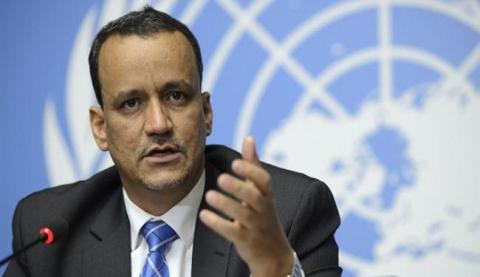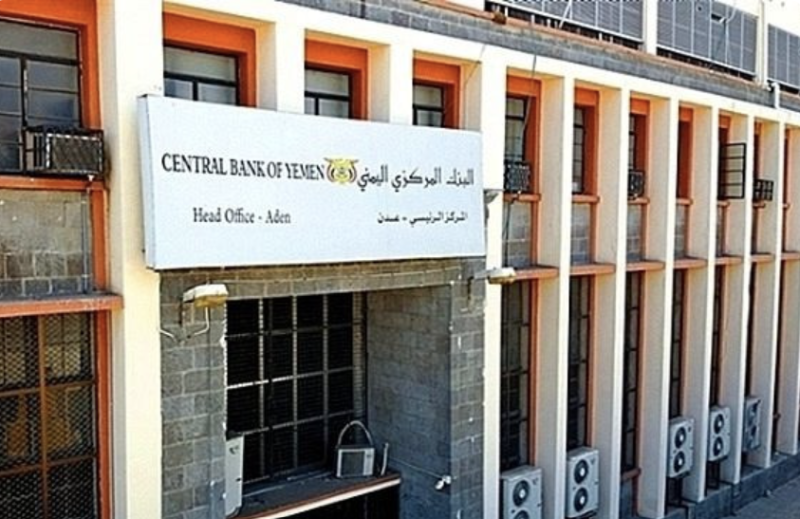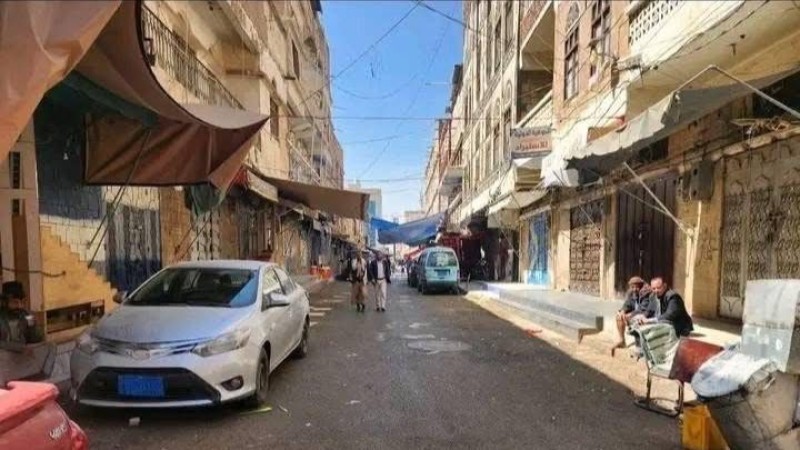Yemeni-Americans stuck in Yemen say U.S. failing to help them


Trapped in Yemen, metro Detroiters ask U.S. government for help, saying the failure to evacuate them is the latest example of the U.S. government discriminating against Yemeni-Americans.
Two months ago, the Mussed sisters of Dearborn and their mother traveled to Yemen for the wedding of a cousin.
Like many in metro Detroit's Yemeni-American communities, they liked to visit family and friends in the Middle Eastern country where thousands in Michigan have roots. But this year, the four U.S. citizens found themselves caught in the middle of a conflict that intensified between the Houthi rebels and neighboring Saudi Arabia and its allies, which began air strikes in March.
Unable to flee because airports halted all civilian flights, Ahlam, 20, Amat, 18, Eman, 16, and their mom were trapped in Yemen's capital, Sanaa, with bombs exploding around them. They have no electricity most of the time, and their food often runs out, said family members in metro Detroit.
"They're, like, basically waiting to die," said their brother, Ismail Mussed of Dearborn. "They're afraid to leave the house. They're scared ... They don't know what's going to happen."
Ismail Mussed and other Yemeni Americans have been pleading with the U.S. government to help evacuate them, pointing out that other countries such as China and India have evacuated thousands of their countrymen. On Friday, the U.S. House of Representatives adopted an amendment to a defense bill sponsored by U.S. Rep. Debbie Dingell, a Democrat from Dearborn whose district includes many Yemeni Americans, that urged President Barack Obama to help rescue them.
"Our office has been deluged with calls from Yemeni Americans, most of them my constituents, who are desperate to escape or have family trapped in Yemen," Dingell said Thursday. "They are looking for a lifeline, and they do not know how to get help. They need to know the government is on their side and has not forgotten them."
But so far, the U.S. Department of State has declined to help, saying it's too risky.
Yemeni Americans say the failure to act is part of a pattern of bias they face from the U.S. government. There are more than 39,000 Americans who were born in Yemen, with 12,200 of them living in Michigan, according to the latest U.S. Census Bureau estimates for foreign-born Americans. Dearborn has 5,403 residents who were born in Yemen, while Hamtramck has 3,125, making up a quarter of the city's population. The figures don't include Yemeni Americans who were born in the U.S.
"They're treating us like we're not Americans," said Mahmoud Ali, a Dearborn resident who has an uncle, brother and cousin who have been stuck in Yemen since March.
Some see bias
Last month, advocacy groups filed two lawsuits on behalf of Yemeni Americans against Obama and federal agencies, including the State Department and Department of Defense. They claimed the U.S. government was failing to help them. More than 50 of the Yemeni Americans mentioned in the lawsuits are from metro Detroit, where Yemeni Americans are the third-largest Arab-American group.
Right now, there are about 5,000 Americans stuck in Yemen, 900 of whom have registered on StuckInYemen.com, says the American-Arab Anti-Discrimination Committee. The committee, along with the Council on American-Islamic Relations, filed a lawsuit last month against the U.S. government over the lack of evacuations.
The two lawsuits are the latest legal action brought by Yemeni Americans alleging biased treatment by the U.S. government.
The Department of Defense didn't comment on the two recent lawsuits, and the White House referred questions from the Free Press to the State Department. The State Department also did not comment, referring Yemeni Americans in Yemen to a government website that provides information on where aid is available and what the U.S. Embassy is doing to help in countries overseas.
A separate lawsuit was filed in Detroit in October by the Council on American-Islamic Relations, saying that Yemeni Americans were facing excessive delays and denials of passport renewals and applications. And last month, a lawsuit was filed by the Asian Law Caucus in San Francisco, accusing the U.S. Embassy in Yemen of confiscating the passports of U.S. citizens of Yemeni descent.
Yemeni Americans say bias was also exhibited in a 2010 report by the Office of the Inspector General of the State Department that contained sections with stereotypes against U.S. citizens of Yemeni descent. The report says that "many of the U.S. citizens (in Yemen) have no connection to the United States except their U.S. passport" and "reflect local standards of illiteracy and lack of education."
U.S. cites warnings
Air strikes by the Saudi-led coalition started in March to stop the Houthi rebels, who are Shia Muslims and generally opposed to Saudi Arabia, from seizing territory and to try to restore the Western-backed President Abdu Rabbu Mansour Hadi to power.
Many are facing dangerous situations, such as the Mussed sisters and their mom, who can see bombs exploding outside their windows. Getting food is a challenge. And Jamal al-Labani, a Yemeni American man from California visiting Yemen, reportedly died in April from a mortar strike after failing to get evacuated.
The State Department has defended its actions in statements in recent weeks, saying repeatedly that it will not attempt to evacuate Americans, telling them to contact other countries, such as India, for help.
State Department spokeswoman Marie Harf said last month at a press briefing that "we're certainly not abandoning" Americans stuck in Yemen, but added: "Given the situation in Yemen is quite dangerous and unpredictable, doing something like sending in military assets even for an evacuation could put U.S. citizen lives at greater risk."
Harf also said that "we have been warning for, I think a decade now, that American citizens not travel to Yemen ... including multiple travel warnings telling people not to travel there and that if they do, the U.S. can provide only limited assistance."
Yemeni Americans say that response was inappropriate, considering that Yemeni Americans often travel back and forth to Yemen, which, while facing security challenges, was relatively safe to travel to until the conflict this year.
The U.S. says "we've warned them before, but you've been warning them for a while, and you can't stop people from seeing their families," said Adel Mozip, a Yemeni-American activist in Dearborn.
Some wonder whether they are being ignored because of their ethnicity and because they are, on average, less wealthy compared to other groups in the Arab-American community. During the conflict in the summer of 2006 between Hizballah and Israel, the U.S. helped evacuate thousands of Lebanese Americans.
Six weeks after Harf made her comments, the situation has deteriorated.
"The U.S. has done a terrible job at protecting our citizens," Mozip said. "They have left them like second-class citizens. The U.S. has a responsibility of getting its citizens out."
Wali Altahif of Dearborn said his sister, niece and nephew are stuck in Radda, Yemen.
"Every day, they want to leave, but there's nowhere to go," he said. "It's really a disaster. ... I'm worried about their safety. Anything could happen."
Some Yemeni Americans have tried to enter Saudi Arabia to flee, but are being pushed back. Others have gotten on boats to travel 130 miles to Djibouti, which is risky because of gunfire and lack of food.
"My constituents are looking for a safe route to come home," Dingell said. "We should not advocate for any action that would put American troops or additional personnel in harm's way. We are simply asking the administration to make every possible effort to safely evacuate U.S. citizens. China, Ethiopia, India and Russia have all taken the necessary steps to evacuate their citizens. If possible, so should the United States."
On Friday, the U.S. House of Representatives adopted an amendment to National Defense Authorization Act proposed by Dingell saying that "the president should exercise all available authorities as expeditiously as possible to evacuate United States citizens and nationals from Yemen."
For now, Mussed worries about his sisters and mother, trying to stay in touch when electricity is available. He and Ali try to communicate when they can through text messages or Facebook posts, sometimes getting videos e-mailed to them of what their family member are witnessing.
On a recent Saturday, Ali gazed at a video on his smartphone that his uncle, Fares Kassem, sent him from Taiz, a city in Yemen. It showed the night sky ablaze in orange, as rockets flared.
"They hear a lot of shootings and bombings at night," Mussed said of his family. "They see the fires, the sky lit up by the bombs."
Detroit Free Press

ADEN — Yemen Airways, the country’s national carrier, announced it will resume flights between Aden and Abu Dhabi beginning in January…

Aden — The United States Ambassador to Yemen underscored the critical importance of safeguarding the independence of the Central Bank of Yeme…

Sana’a – A new international report has confirmed that Houthi militias continue to escalate economic measures against the commercial se…